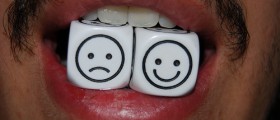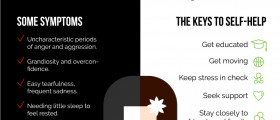
What kind of disorder is intermittent explosive disorder?
The name of this disorder speaks quite a lot about it. Main characteristics of this mental disorder are episodes of violent and aggressive behavior that tend to repeat and that do not correspond to the situation in question at all. These aggressive episodes usually last from 10 to 20 minutes, and in a way, they are similar to attack. It is interesting that sometimes the signs that might announce this episode may appear even hours in advance. The patients suffering from this disorder usually feel some kind of tension before the episode, and after it ends, they feel some kind of a relief. In spite of believing that their aggression is justified, they feel embarrassed, regretful or upset, and bewildered by their impulsive and often assaultive behavior.
The main symptoms of this disorder may accompany aggressive episodes, or they may precede them, and they include increased energy, tremors, palpitations, rage, irritability, headache, and tightness in the chest. As for the cause of this disorder, the fact is that it has not been determined yet, but various environmental and biological factors play a very important role. For example, many patients grew up in families in which verbal and physical abuse used to be common, and exposure to this at an early age makes the children more prone to developing and exhibiting the same behavior. Such children grow up with the belief that the best means for restoring their self-esteem is violence, because they learned by observing their parents or family members that such behavior is justified. It is not excluded that genetics may be responsible for this disorder and that it could be inherited. It has been determined that in people with this disorder the levels of testosterone are higher than normal.
Can it be cured and how to deal with it?
This disorder cannot be cured, but there are methods that can help in the treatment. Medications such as antidepressants, anticonvulsants, anti anxiety medications, as well as those that stabilize mood have proven to be very helpful, but the doctor has to decide which are the best choices for each particular case. Cognitive behavioral therapy is frequently used in the treatment of people who suffer from intermittent explosive disorder, since it helps in identifying such situations and behaviors that usually trigger aggressive episodes, and it teaches how to manage anger and keep under control the responses that are inappropriate. Depending on the case, the therapy may be individual or group, but family support is also of crucial importance.

















Your thoughts on this
Loading...